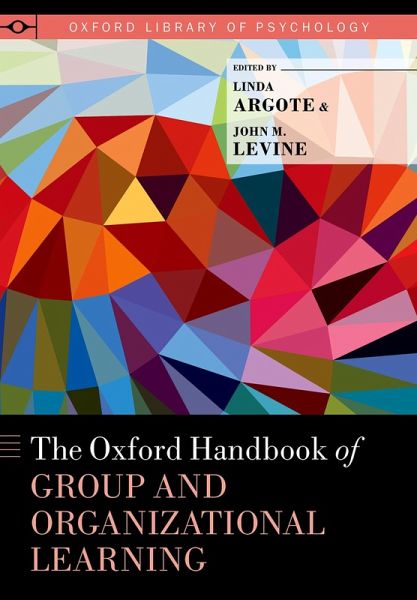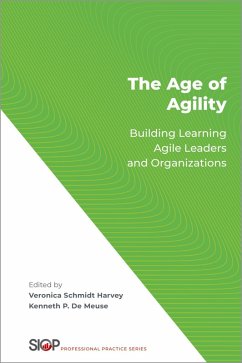
The Oxford Handbook of Group and Organizational Learning (eBook, PDF)
Versandkostenfrei!
Sofort per Download lieferbar
74,95 €
inkl. MwSt.
Weitere Ausgaben:

PAYBACK Punkte
37 °P sammeln!
Groups and organizations vary dramatically in their ability to learn. Some acquire substantial knowledge as a function of experience, while others do not. In groups, learning can occur at the level of the individual member and/or the group as a whole. In organizations, learning can occur at both of these levels as well as that of the wider collective. Besides varying in the amount and kind of information they acquire, groups and organizations also vary regarding their success in retaining knowledge and transferring it to other units. In general, groups and organizations that are proficient in ...
Groups and organizations vary dramatically in their ability to learn. Some acquire substantial knowledge as a function of experience, while others do not. In groups, learning can occur at the level of the individual member and/or the group as a whole. In organizations, learning can occur at both of these levels as well as that of the wider collective. Besides varying in the amount and kind of information they acquire, groups and organizations also vary regarding their success in retaining knowledge and transferring it to other units. In general, groups and organizations that are proficient in acquiring, retaining, and transfering knowledge are more productive and more enduring than their less able counterparts. The goal of this handbook is to bring together cutting-edge theoretical and empirical work on group and organizational learning by leading scholars from several disciplines. Because many of the same processes influence learning in groups and organizations, including both kinds of learning in the same volume has the potential to facilitate the integration of knowledge and the cross-fertilization of ideas. These benefits are reciprocal, in that research at the group level can shed light on how organizations learn whereas research at the organizational level can illuminate how groups learn. By clarifying similarities and differences in the processes that underlie learning in groups and organizations, the handbook advances understanding of the causes and consequences of learning in collectives of varying size and complexity.
Dieser Download kann aus rechtlichen Gründen nur mit Rechnungsadresse in A, B, BG, CY, CZ, D, DK, EW, E, FIN, F, GR, HR, H, IRL, I, LT, L, LR, M, NL, PL, P, R, S, SLO, SK ausgeliefert werden.













